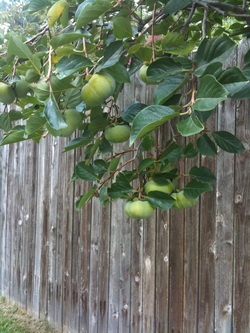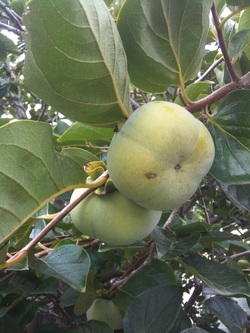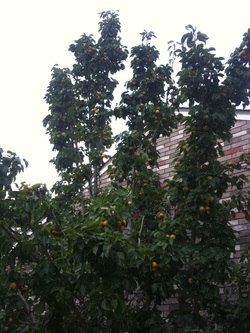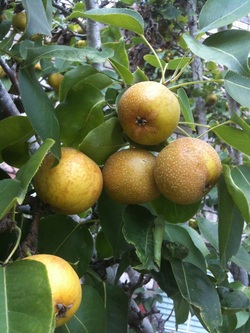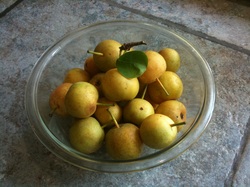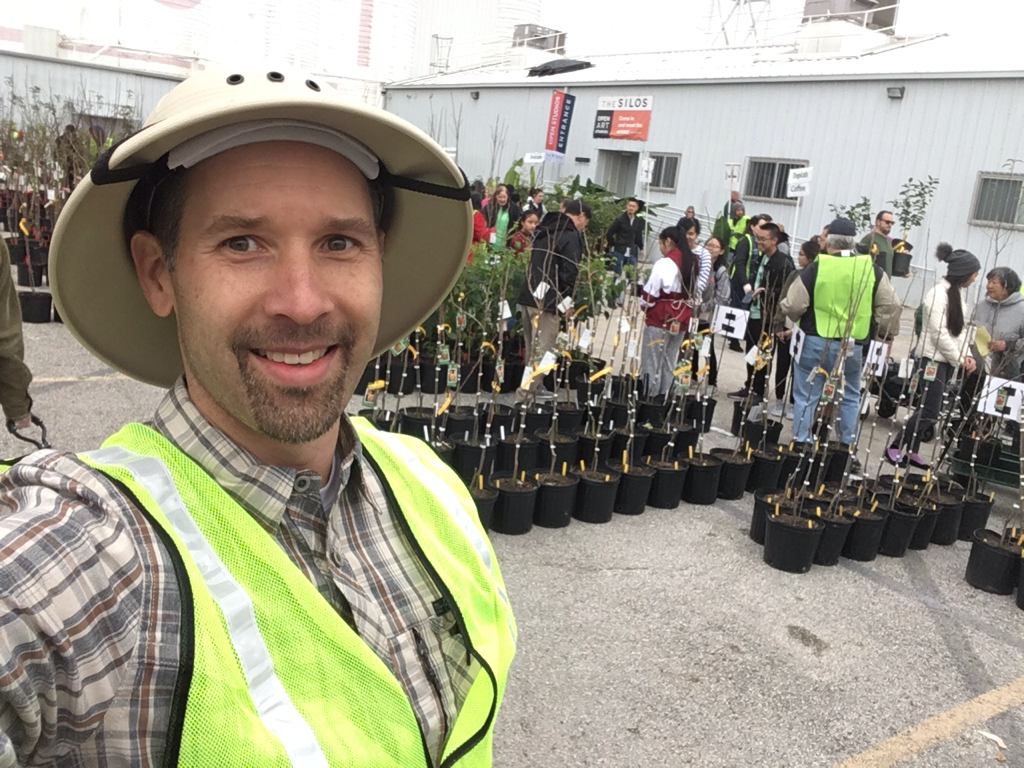
After snooping around the fence for a few minutes, I rang the doorbell, and was greeted by two barking dogs and a UT college student visiting his parents for the weekend. He said his folks weren't home, but that he would be happy to show me the fruit trees. In addition to the persimmon and Asian pear visible from the street, his parents also grow several varieties of vegetables, citrus, and jujubes. I'm not a jujube expert, but their 15-ft tall trees looked like Lang to me.
The persimmon is a Fuyu or Fuyu-type non-astringent persimmon which produces bountifully every year. I've never tasted the fruit from this tree, but I'm hoping I will be allowed to collect a sample this fall. The birds go crazy over the fruit when they start to turn orange. I was very impressed with the quantity and the size of the fruit considering how dry this summer has been, although this may be due to supplemental irrigation.
The Asian pear tree was loaded to capacity. A few weeks ago one of the scaffold branches became so heavy with fruit that it actually broke. The fruit is small, approximately the size of a golf ball, yellow, and slightly russeted. I don't know if the fruit was so small because of the drought, or because they were not thinned out in the spring. The mocking birds were happily attacking the fruit, and there were so many pears I was told I could pick all the fruit I wanted. I picked a half-gallon and brought them home.
A test bite on the way home was disappointing. I had often read of Asian pears being described as being "mild flavored", but these were "no flavored". To me they tasted sweet and watery, but they had no acidity or flavor to balance the sweetness. I tried several more at various stages of ripeness, but the result was always the same. I posted a picture on the Texas Rare Fruit Growers forum, where it was possibly identified as being the variety 20th Century, which is consistent with other descriptions I have read of this cultivar. Too bad. I had planned on adding an Asian pear tree to the front yard this winter, but now I'm having second thoughts. Hopefully the varieties Hosui, Shinko, and Ya Li are better flavored, but I will definitely want to try them before I plant a tree.
